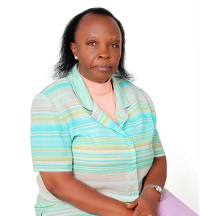Inspiration Q&N with Hon. Justice. E. Munuo JA (founder of the Tanzania Judges Association)
by :
 Justice. E. Munuo JA
Justice. E. Munuo JA
Published on December 20, 2017

- Could you tell us about your time at the bench? Total of 42 years plus in the Judiciary of Tanzania: 18 as Resident Magistrate, High Court Judge for 15 years and ten years in the Court of Appeal of Tanzania.
- What inspired you to be a Judge? I was committed to administering justice impartially and equally to all persons and that pushed me to join the Judiciary and pursued the same goal until I retired in Sept 2012.
- What qualifications, skills and experience does one need if they want to be a judge? 1. You must be a lawyer and practised law for at least ten years.
- Where you the only girl studying law at the time? No, we were 2 female students in a class of 98 students.
- How were you selected to be the first court of appeal female judge? In terms of a judicial officer I happened to be the most senior woman judge in the High Court of Tanzania so there was no obstruction to my being appointed a Justice of Appeal. I had the required qualifications for the
post. - Did the reality of being a magistrate/judge live up to the expectations you had initially? Yes, the reality of being a magistrate/judge and finally justice of appeal met my expectations.
- What challenges did you face during your time at the bench? Heavy workload, poor court infrastructure due to inadequate funding and a tight schedule of managing career and household chores.
- If you knew what you know now, what would you change and why? I set my heart and was committed to administering justice. I discharged that obligation to the best of my ability by using the available resources then. Under those circumstances, I would change nothing.
- What does it take to be a Judge at the court of appeal (The highest court in the land)? It takes absolute commitment, honesty, firm integrity and good knowledge of the law to enjoy being a justice of appeal.
- What case gave you more satisfaction and why? The case of A.G versus Lohay Akoonay and Another wherein I struck down provisions of the Ujamaa Villages Act, 1992 purporting to oustthe jurisdiction of the courts to determine communal land disputes.
- Do you think the legal industry has changed since you started off and if so what? Yes, a lot of law reform has taken place and is still in progress.
- What would you advise a law graduate who is interested in a career in the bench? Administering justice is here to stay so I encourage interested lawyers to join the bench.
- You are the founder of Tanzania women judge’s association (TAWJA), could you please tell us about the association and what achievements you have had so far? TAWJA’s mission is toconduct judicial education for judges and magistrates and public education on human rights particularly the rights of women, children and other vulnerable groups.
- Would you say that there is justice in Tanzania? The courts are there to administer justice impartially, equally and without being compromised by corruption. Many of the problems arise from bad governance and corruption. If the Executive, Parliament and the Judiciary diligently
and honestly discharge their obligation, justice will be seen to be done. - Now that you are retired are you still involved with the judiciary? No, despite being an advocateI do not practice law.
- What continues to inspire you as a lawyer? Learning more, training different groups on human rights.
- Who was your mentor? None to the best of my knowledge, I can safely say that I am self made.
- Would you be interest to volunteer your time to mentor and train young lawyers starting off?
Yes, that is my area of operation. - If you were to give one tip/advice to a young lawyer starting off today what would it be? Be focused to learning the law the more and adhering to professional ethics, good conduct and honest in all your operations.
- Apart from Law what else do you enjoy doing? Reading widely on education, psychology, health and listening to country music.
Thank you very much for taking the time to talk to The Tanzanian Associate Ltd.


